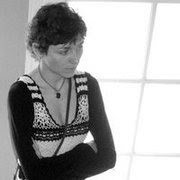
Bumgarner and La Leche League International, Mothering Your Nursing Toddler, 2000
My score
8/10
Amazon link
Mothering Your Nursing Toddler
My review
A handy reference! This is like 300 pages of things to tell people when they question a mother that is nursing her child "too long." List of benefits of breastfeeding? Check. Historical evidence of late weaning? Check. Comparison to other large primates, and extrapolation of weaning age? Check. This is the book mothers under scrutiny should read for support. What it really comes down to is if the mother is enjoying it, the children are enjoying it, and it works for the family, then more power to ya. The author provides strategies to keep breastfeeding going as long as the children want -- child-led weaning is the main topic here. If you are looking for a book that encourage weaning, look elsewhere. The purpose of this book is to make you, the reader, feel good about your lengthy nursing relationship.
The American Association of Pediatrics (AAP) recommends breastfeeding for at least one year. The World Health Organization (WHO) recommends breastfeeding for at least two years. That should keep me covered for a while. After that, here are some comebacks I plan to employ.
- The Jewish Angle: In ancient Israel, prophets, merchants, and shepherds alike nursed for two years. Sarah and Abraham weaned Isaac at two, but Moses was nursed for three years.
- The Primate Angle: Large primates wean when the young has either tripled its birth weight or is a quarter of its adult weight (for humans, that translates to between 2 years and 6 years, respectively). Or, large primates nurse for around six times the length of gestation of their young (six times 9 months = 54 months, or over 5 years for humans). Or, weaning in primates can be predicted is when the first permanent molars come in (in humans, that happens around 6 years old).
- The Health Angle: A human child's immune system is mature around 6 years old. Until then, children continue to benefit from the antibodies present in breast milk.
- The Average Angle: A 1989-91 study of La Leche League conference participants in the United States reported an average weaning age of 3 years. That's the same as the minimum natural weaning age in cultures that allow self-weaning.
Although, at times, a little on the defensive side, the book does bring up good points about the benefits of continued nursing, especially for working mothers, and the practical implications thereof. In the end, there is a thorough discussion of weaning, as well as several gentle weaning strategies. A good support book, it has a very -- I don't know -- compassionate approach to childrearing in general and nursing in particular.




This would be a useful book to have, it seems!
ReplyDeleteDid it happen to include any arguments about socialization of the child? I have an acquaintance whose husband said the child wouldn't be appropriately socialized if he was still running to mommy's breast as a toddler+
Mainly I think the dad wanted mom's breasts back for himself...
Also - I like the Jewish angle! :)